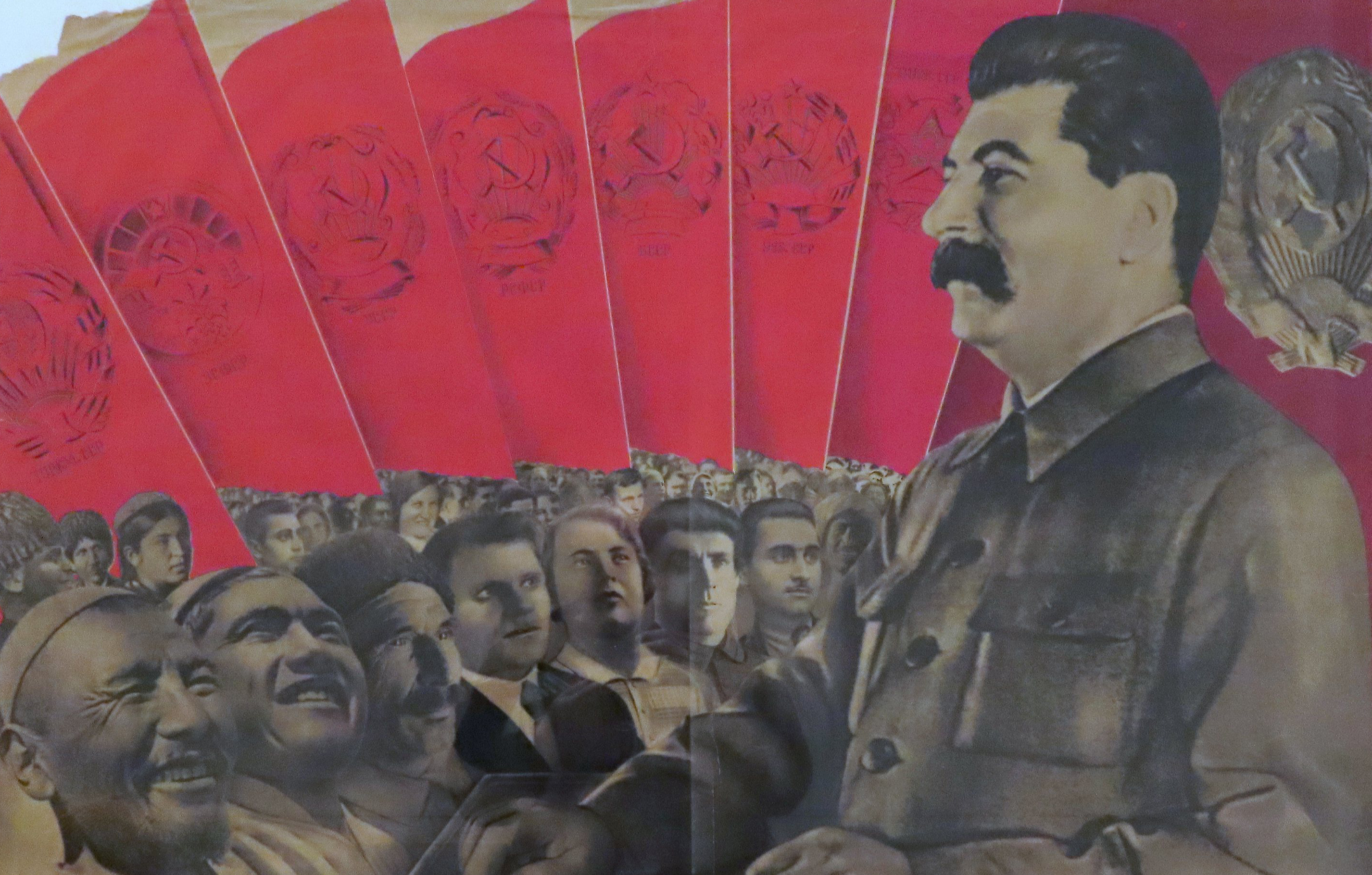All political regimes need an ideology. This is a set of principles or beliefs that explain what the government is doing and why it is doing it. Ideally, the ideology justifies the government’s role in terms of some ethical principles that are commonly accepted by the governed—even if the government is not acting in accordance with those principles and even if it is blatantly violating them.
In general, the more compelling the ideology, the more successful the state will be in carrying out its objectives. In the twentieth century, the most successful ideology-based regimes emerged in Russia, China and Germany.
The idea of taking from each according to his ability and giving to each according to his needs is a powerful idea. It loosely describes the ethos that governed the communal existence of our ancestors—living in small tribes, say, 50,000 years ago. As a practical matter, however, neither the Chinese communists nor the Russian communists ever redistributed significant resources from the able to the needy. If anything, they did the reverse. The leaders lived a life of luxury while the peasants struggled to survive. That practice was continued in subsequent communist regimes—in Cuba and North Korea, for example.
National socialism in Germany was based on the idea that individuals have a duty to sacrifice for the good of the whole. This is another idea that would have been common among our primitive ancestors.
The reason I mention our distant ancestors is because the way they thought may have been passed down to the modern era by means other than culture alone. It may, to a certain extent, be part of our genetic inheritance.
The communist moral imperative was a very effective way to explain why people shouldn’t be allowed to selfishly pursue their own happiness. The fascist moral imperative had the same end. And as I show below, a similar function was served by 20th century liberalism in the United States.
In World War II, the three most prominent figures were Hitler, Stalin and Roosevelt. All three disagreed about what government should be doing. But they were in total agreement on what government should not be doing. All three saw classical liberalism as the single greatest ideological threat to their regimes. In fact, classical liberalism was seen as a greater threat to the political thinking of these three men than communism, fascism and modern liberalism were to each other.
Government is the unique institution that has a monopoly on the socially legitimate use of force. That means government can forcibly take from Peter and give to Paul, without Peter’s consent. So, one way to think about political systems and political ideologies is to ask: when is it permissible to take from Peter and give to Paul?
In 1776, the American government was the first government in the history of the world to give a clear and unambiguous answer to the question of when the government can give to Peter what is taken from Paul. The Declaration of Independence leaves nothing to doubt. People have the right to pursue their own happiness. Government is justified in interfering with that right only if there is some overriding general welfare purpose.
By implication, it is never justified to take from Peter and give to Paul for no other reason than the fact that Paul has more votes than Peter. This is consistent with the writings of Adam Smith, John Locke, Thomas Jefferson and many other classical liberals.
Twentieth century liberalism began by calling itself “progressivism,” then “liberalism,” and then “progressivism” again. But under whatever name, it is the view that government may legitimately take from Peter and give to Paul, even if the general welfare is not promoted, and even if the general welfare is diminished.
One way to understand this distinction is to consider Lochner v. New York in 1905. In that case, the Supreme Court struck down a state law prohibiting bakery workers from working as long as 10 hours per day or 60 hours per week.
Adam Smith would have understood this law very well. It not only served a special interest; it was motivated by ethnic prejudice. Established New York bakers sought the restriction in order to suppress competition from Italian and Jewish bakers who were willing to work longer hours. The restriction was like something you might find in the medieval guild system.
Between 1897 and 1937, in what is known as the Lochner era, the Supreme Court struck down 184 laws. For the most part, these were laws that limited freedom of contract—usually for some obvious special interest reason, without any compelling “general welfare” rationale.
If you ask a modern liberal if he thinks that government should act to promote the general welfare, he will almost certainly say “yes.” But Adam Smith and Thomas Jefferson would have said the same thing. So, how are they different?
Here is an important distinction. Communism did not describe what the Russian and Chinese governments actually did. Instead, the communists were the ideological apologists for Stalin’s Russia and Mao’s China. Similarly, fascism didn’t describe what the German government actually did. Fascism was the intellectual apology for Hitler’s Germany.
This is the best way to understand what was happening at the same time in the United States. Modern liberalism did not advocate what liberal government did. It apologized for it and defended it against classical liberalism.
Elsewhere I have written that when democratic political systems have the ability to take from Peter and give to Paul or vice versa, without any requirement to promote the general welfare, we will get a “public choice equilibrium” that will almost always be suboptimal. That is, society as a whole will be less well-off than it could have been. Since this equilibrium is almost impossible to defend on any grounds, twentieth century liberalism rose to the challenge by arguing (falsely in my opinion) that these suboptimal outcomes are better than living in a classical liberal world. Inevitably, they made this argument by mischaracterizing what life in a classical liberal society is like.
If you ask modern liberals what they think, they will tell you they are against racism (especially segregated public schools); they favor clean air and clean water; they want to help the poor; they oppose inequality, etc. Yet if you look at what happens where liberals govern, all these problems seem to be worse than they are anywhere else.
- Nearly half the homeless people in the country now live in California.
- Seven of the 10 cities with the most polluted air are in California, and California has some of the worst water pollution problems as well.
- According to the New York Times, the New York City school system is among the most segregated in the country; and nationwide, liberal states tend to have the most segregated schools.
- In Washington DC, black students attend schools with 55 percent higher poverty rates than white students and score an average of 5.1 grades lower on achievement tests.
All of these bad outcomes result from public policies enacted by liberal politicians, elected by liberal voters, often with benevolent intentions. Further, no prominent Democratic politician running for office seems willing to talk about them—let alone promise to correct them.
In the mid-twentieth century it was common to view the great ideological divide as one between capitalism and socialism. The democratic, developed countries, by contrast, were called “mixed-economy welfare states.”
Modern liberalism effectively functions as the premier defender of the mixed-economy welfare state.












